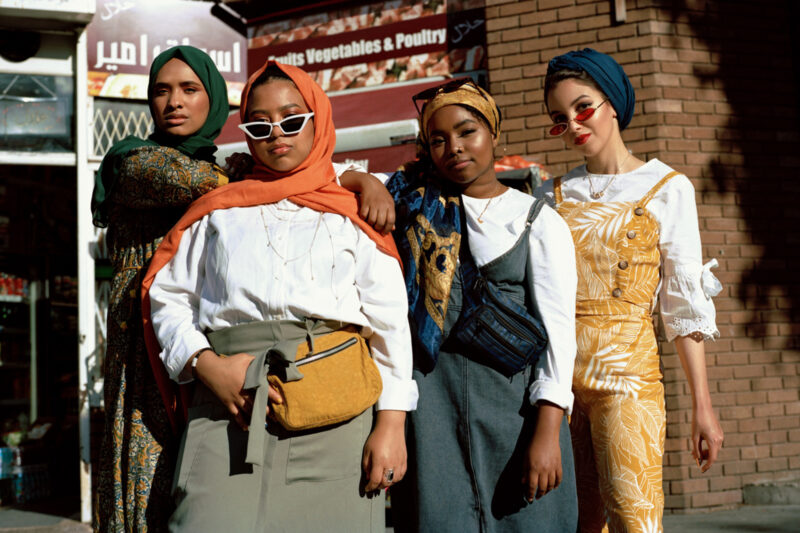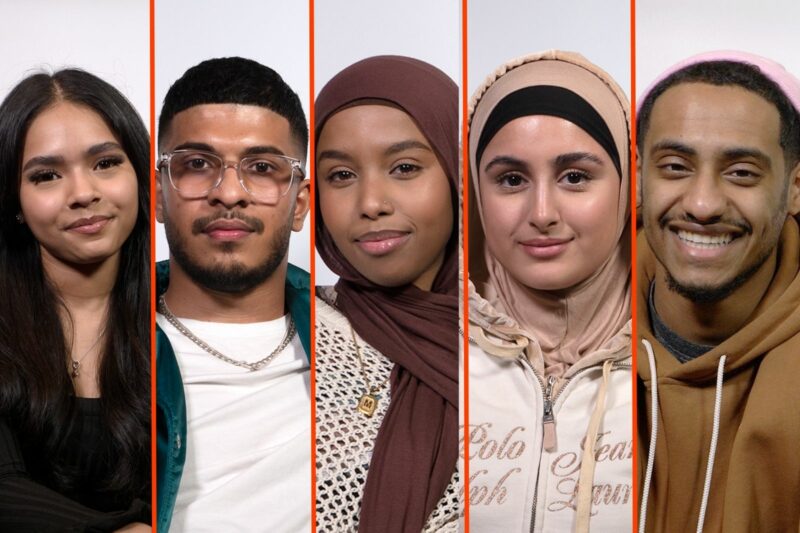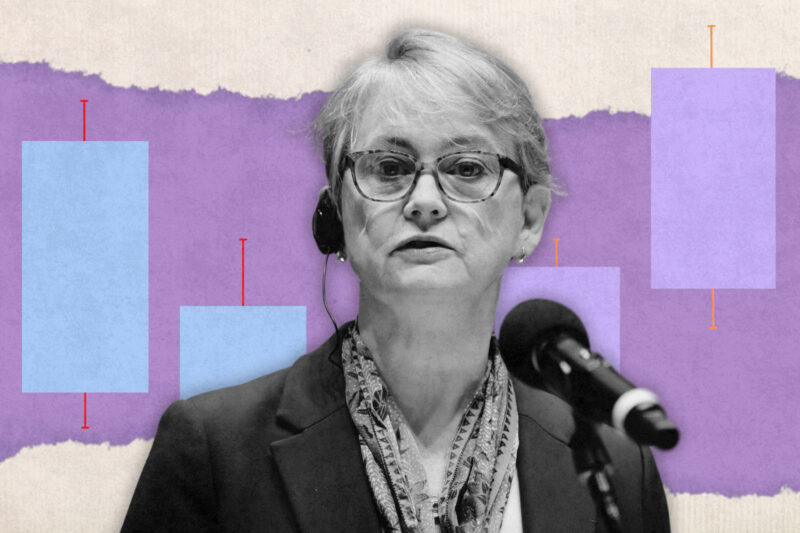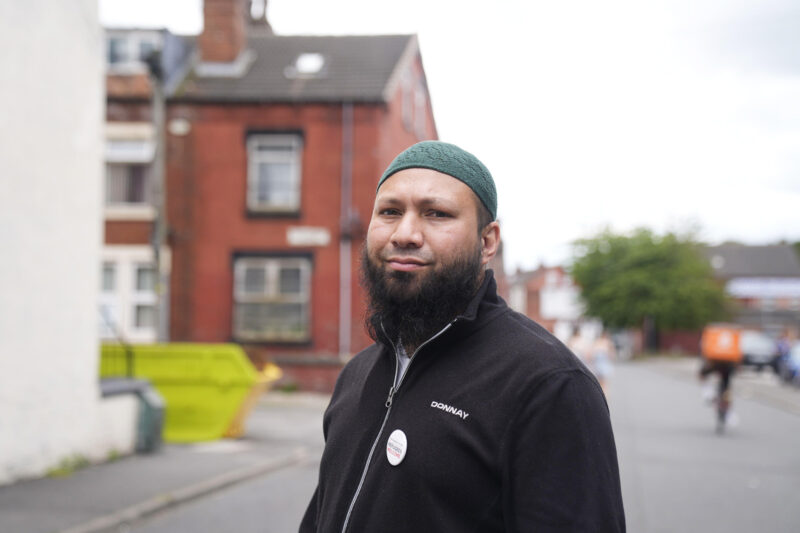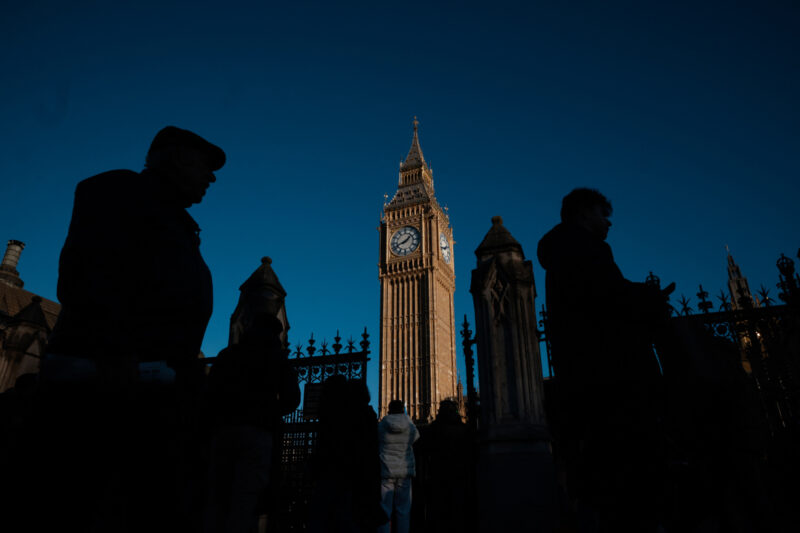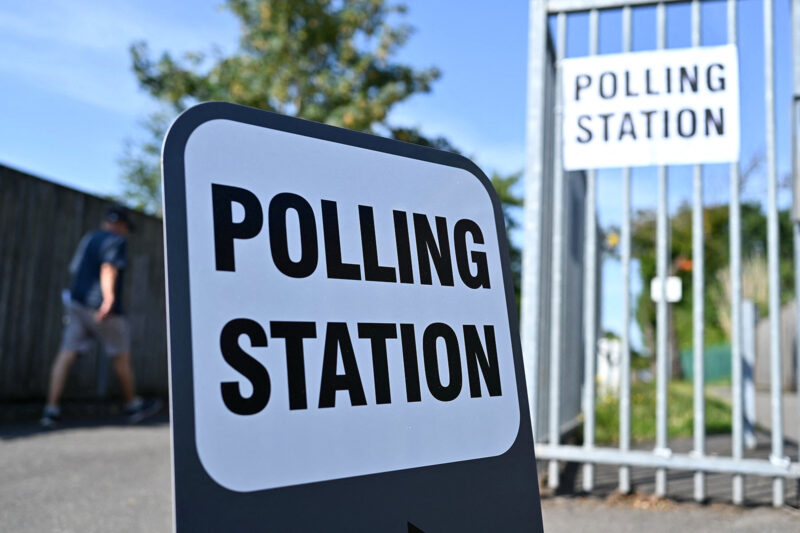Gen Z Muslims in the UK — the figures
From social mobility to wanting to live abroad, Hyphen’s poll reveals the experiences and aspirations of a generation of 16-24 year olds

When our team of journalists set out to research the hopes and aspirations of the UK’s Gen Z Muslims late last year, many issues came to the forefront, including economic outlook during the current cost of living crisis, the likelihood of homeownership, personal debt and attitudes towards climate change and Islamophobia. Nearly four months later, the findings reveal the inner thoughts of a fourth generation of British Muslims. Here are the full results:
Methodology: Savanta interviewed 2,073 respondents in the UK aged 16-24 between 6th and 21st February 2023. 1,002 respondents were a sample of UK Muslims with the data weighted to be representative of UK Muslims aged 16-24 by age, gender and region. 1,071 respondents were from a nationally representative sample, weighted to be representative of the UK population aged 16-24 by age, gender, region and religion.
Q1. You mentioned that you are currently a tenant or live at home with parents/guardians. How confident are you that you will be a homeowner (with or without a mortgage) by the age of 30? Base: All respondents who are not homeowners (Muslim = 772, Nat rep n=823)
- Two thirds (66%) of Gen Z Muslims (aged 16-24) who are not homeowners say they are confident that they will be a homeowner by the age of 30.
- While a similar proportion of nationally representative Gen Z respondents aged 16-24 say the same (63%), Muslim respondents are significantly less likely to say they are not confident (25% vs. 32%).
- Muslims men are significantly more likely than women to say they are confident they will be a homeowner by the age of 30 (73% vs. 61%).
Q2. On a scale from 0-10 where 0 is very insecure (i.e. you struggle to afford essentials on a day-to-day basis) and 10 is very secure (i.e. you have money to save, invest or spend on non-essentials), how would you rate your current financial situation? Base: All respondents (Muslims n=1,002, Nat rep = 1,071)
- Three in five (59%) Gen Z Muslims rate their current financial situation as secure (6 out of 10 or higher), with a quarter (25%) rating their finances as very secure (8 out of 10 or more). Around one in five (22%) Gen Z Muslims rate their personal finances as insecure (5 out of 10 or lower). These figures are all comparable to the proportion of nationally representative respondents who say the same (58%, 24% and 24% respectively).
- Among Muslim respondents, men (30% vs. 19% of women), those aged 22-24 (31% vs. 20-24% of 16- year olds), born outside of the UK (31% vs. 23% among those born in the UK), graduates (31% vs. 21% of non-graduates), those who are married (39% vs. 23% and 24% of those who are single or in a relationship, but not married) and homeowners (40% vs. 23% of tenants and 20% of those living with parents) are more likely rate their current financial situation as very secure.
Q3. To the best of your knowledge, how much personal debt do you currently have? Base: All respondents (Muslims n=1,002, Nat rep n=1,071)
Half (52%) of Gen Z Muslims have some form of personal debt with respondents evenly split between those who have debts worth less than £10,000 (25%) and between £10,001 and £50,000 (24%). These figures are all consistent with the nationally representative sample of respondents.
- Among Gen Z Muslims, at least two thirds of those aged 19-21 (66%) and 22-24 (71%) say they have any debt, significantly higher than the proportion of 16-18 year olds who say the same (25%).
- Three quarters of Muslim graduates (76%) and homeowners (76%) say they have debt, compared to two in five (41%) non-graduates, those living with parents (43%) and around three in five (57%) renters.
Q4. Have you provided any financial support to your parents in the last 12 months? Base: All respondents (Muslims n=1,002, Nat rep n=1,071)
- Over half (53%) of Gen Z Muslims say they have provided financial support in the form of rent, bills or living expenses to their parents in the last 12 months, significantly higher than the proportion of the nationally representative sample who have done the same (43%).
- Among Muslims, men (58% vs. 48% of women), 22-24 year olds (73% vs. 61% of 19-21 year olds and 30% of 16-18 year olds), those working (74% vs. 34% of students), graduates (71% vs. 44% of non-graduates) and homeowners (78% vs. 46% of tenants and 47% of those living with parents) are significantly more likely to have provided financial support to their parents in the last 12 months.
Q5. Which of the following statements best describes your identity? Base: All Muslims (n=1,002)
- Around two in five (43%) Gen Z Muslims say they identify equally as British and Muslim, while a slightly larger proportion (45%) say they identify more with their Muslim identity than their British identity. Less than one in ten (8%) say they identify more with their British than Muslim identity.
- Gen Z Muslims who were born in the UK are almost twice as likely to say they identify equally as British and Muslim (48% vs. 25%). In contrast, those born outside of the UK are both more likely to say more with their British than Muslim identity (11% vs. 6%), more with their Muslim than British (54% vs. 42%) and that they don’t know (10% vs. 3%).
- Black Muslims are significantly more likely than Asian Muslims to say they identify more with their Muslim than British identity (52% vs. 43% respectively).
Q6. How optimistic are you about society’s ability to tackle climate change? Base: All respondents (Muslims n=1,002, Nat rep n=1,071)
- Both Gen Z Muslims and nationally representative Gen Zs are split on how optimistic they are about society’s ability to tackle climate change. However, Muslims are more likely to be optimistic compared to other Gen Zs (49% vs. 44%), whereas half (50%) of the nat rep sample say they are not optimistic (vs. 43% of Muslims).
- Among Muslims, women (53% vs. 34% of men) and 16-18 year olds (52% vs. 36-40% among 19-24 year olds) are more likely to say they are not optimistic about society’s ability to tackle climate change.
Q7. How likely or unlikely are you to leave the UK and live abroad in the future? Base: All respondents (Muslims n=1,002, Nat rep n=1,071)
- Around half of Gen Z Muslims (47%) and nationally representative 16-24 year olds (48%) say they are likely to leave the UK and live abroad in the future. Similar proportions of both samples also say they are not likely to leave the UK (43% of Muslims and 46% of Gen Z adults).
- Among Muslim respondents, those aged 19-21 (51%) and 22-24 (52%) are significantly more likely than 16-18 year olds (39%) to say they are likely to leave the UK and live abroad in the future.
Q8. You mentioned that you would be likely to leave the UK and live abroad in the future, what are the main reasons why you would be likely to leave? Base: All respondents who say they would be likely to leave the UK and move abroad in the future (Muslims n=478 , Nat rep n=515)
- Among Gen Z Muslims who say they are likely to leave the UK and live abroad in the future, over half (53%) say a main reason for leaving would be for a higher standard of living, significantly higher than the nationally representative sample who say the same (45%).
- In contrast, nationally representative Gen Z respondents are most likely to say they would leave to experience a different culture (50%), significantly higher than Muslims who say the same (39%).
Q9. Have you experienced Islamophobia in any of the following situations? Base: All Muslims (n=1,002)
- In last year’s poll, 69% of all Muslims said they had experienced some form of Islamophobia in the workplace
- Around half of Gen Z Muslims say they have experienced Islamophobia in a school, university, or other education setting (49%) or in a social setting (47%), while a slightly smaller proportion (44%) of those who are working say they have experienced Islamophobia in the workplace.
- Women are more likely to say they have experienced Islamophobia in a social (53% vs. 41% of men) or educational setting (53% vs. 45%).
Q10. How often, if at all, do you do any of the following?
Base: All respondents (Muslims n=1,002, Nat rep n=1,071)
- Nine in ten (89%) Gen Z Muslims pray at home at least sometimes, with two thirds (67%) doing this often. A smaller proportion (68%) go to a mosque to pray at least sometimes.
- Approaching half (46%) say they go to a religious leader for spiritual advice at least sometimes, however a larger proportion (71%) say they at least sometimes use social media platforms to get spiritual advice.
- Compared to Gen Z Muslims, the nationally representative sample are much less likely to do all of the options tested. Around a third say they pray home (35%) and visit a place of worship (33%). They are more than twice as likely to use social media platforms to get spiritual advice (63%) than they are to go to a religious leader (25%).
Q11. How much of an influence, if any, do religious leaders (e.g., Priest, Imam, Rabbi etc.) have on your life?
Base: All respondents (Muslims n=1,002, Nat rep n=1,071
- Four in five (81%) Gen Z Muslims say that religious leaders have an influence on their life, twice the proportion who say this in the nationally representative sample (38%).
- Two in five (40%) Muslim men say religious leaders have a lot of influence on their life, significantly higher than the third (33%) of Muslim women who say the same.
Q12. To what extent, if at all, do you believe the coverage of Muslims in the UK by the media (i.e. television news, newspapers) is accurate? Base: All respondents (Muslims n=1,002, Nat rep n=1,071)
- Around two thirds (65%) of Gen Z Muslims say that the coverage of Muslims in the UK by the media is not accurate, this figure is significantly higher than the proportion of the nationally representative sample who say the same (51%). However, this difference is predominately caused by the fact that the nationally representative sample are much more likely to say ‘don’t know’ (18% vs. 6% of Muslims).
- Among Gen Z Muslims, women (75% vs. 55% of men), 16-18 year olds (79% vs. 55% and 58% of 19-21 and 22-24 year olds) and those born in the UK (69% vs. 53% of those born outside of the UK) are more likely to say that media coverage of Muslims in the UK is not accurate.
Q13. Which of the following best describes your view? Base: All respondents (Muslims n=1,002, Nat rep n=1,071)
- Almost nine in ten (87%) of Gen Z Muslims say that employers should have to offer Muslim employees additional time off work to observe Eid. This figure is significantly higher than the proportion of nationally representative respondents who say the same (62%), however even among the nationally representative sample those who say employers should have to do this outnumber those who say they shouldn’t by more than three to one (62% vs. 17%)
- Muslim women are more likely than Muslim men to say that employers should have to offer Muslim employees additional time off work to observe Eid (91% vs. 83%).
Katharine Swindells contributed to reporting.
• Read more on Hyphen's exclusive Gen Z poll
 Newsletter
Newsletter

